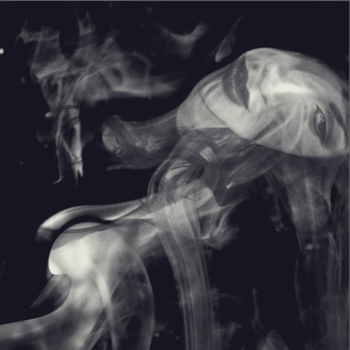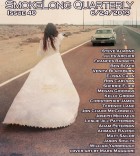“Recess” gets a lot of things right when it comes to young boy narrators. Do you write many stories from this perspective?
You know, it’s odd, and I don’t look into it too deeply, but I think I usually write about youth from the perspective of girls. I’ve got a handful of short shorts, a couple of stories, and the novel I’m currently working on which all feature young female protagonists.
I guess it’s because my own boyhood was so traditionally boyhoodish—Boy Scouts, sports, etc.—that I’m just not that interested in that kind of masculinity. I feel certain about so much of it, and so I gravitate toward something messier, at least in my mind. Like, I’m quite certain the person I’m drawn to most in this story is poor, resolute June Davis. Why doesn’t she want to be kissed? I mean, I know why she shouldn’t.
I particularly love the narrator’s definition of romantic. I read a story the other day by a fourth-grader writing about high school. My favorite line was: “Joe romantically drove her home.” Where do you think the younger generation gets their ideas of romance and love?
Oh, I suppose it’s stories, just like anything else. It’s just that so many of the ones that hit kids hardest are our most basic. Growing up is really about complicating simple loves. Apologies for my heteronormativity here, but you learn very on to play these prince/princess, boyfriend/girlfriend, roles which you think mean something—can mean everything at the time—but really it’s just like trying on your parents’ clothes. Sooner or later, you realize they make you less of an adult.
That’s probably about where the boys in the story come in. Right where you begin to define yourself in all these social ways as to what kind of a person you are, especially if the narrative isn’t quite working out for you, if June Davis won’t kiss you. These boys, I imagine, think of themselves as the “nice guys,” ones who aren’t appreciated, not yet, whose time will come, who just need a chance, who don’t realize they will spend the rest of their lives discovering they’re probably not as nice as they thought.
You’ve got to learn that, too. Again and again.
In this world, recess = freedom. But Alex never enjoyed it; he always waited at the top of the hill to return into the school. Do you think the narrator holds that against him now that Alex is dead?
That’s a good question but—I don’t know. I suppose I see Alex haunting the world even before he was dead, this reminder to the narrator of that kind of complication I mentioned. Alex never fit, but now there’s a hint of envy to the certainty of death, I think. Although the narrator isn’t about to run himself off a cliff, I do think there are scars here the narrator never expected another person, even one as inessential to him as Alex, could give him.
Why do you think that stories about the young confronting death are so compelling?
Because it’s terrifying, that realization. This story is based, at least partially, on something that happened to a boy in my elementary school (which is strange as I almost never write about real things in short shorts. Usually I’m all just “what if there were vampire dinosaurs!” This is a story of exceptions, apparently).
Anyway, this boy was found by the South Platte River stabbed in the chest with a pocket knife. But what I remember most about his death isn’t the day everyone thought he’d been murdered, it was when the police decided he’d been riding his bike with the knife out and had fallen on it. Murder made sense to me then—again, stories could make it even dumbly romantic, like dying for June Davis—but that you could accidentally kill yourself so easily, senselessly—that’s what would make me run. The truth didn’t really fit, however, so we’ve got a murderer.
I again chose the higher violence.
One of my favorite lines in the story is: “I had nothing to apologize for as far as the boy was concerned.” This attitude seems so indicative of boys his age. And when spring finally comes, they all run past the place where Alex was discovered without stopping. Do you think the return of recess will erase the memory of Alex forever?
I think the boys believe it will. I know they are wrong.
Read more about Adam in his Fish Fellow interview.



 The core workshop of SmokeLong Fitness is all in writing, so you can take part from anywhere at anytime. We are excited about creating a supportive, consistent and structured environment for flash writers to work on their craft in a community. We are thrilled and proud to say that our workshop participants have won, placed, or been listed in every major flash competition. Community works.
The core workshop of SmokeLong Fitness is all in writing, so you can take part from anywhere at anytime. We are excited about creating a supportive, consistent and structured environment for flash writers to work on their craft in a community. We are thrilled and proud to say that our workshop participants have won, placed, or been listed in every major flash competition. Community works.